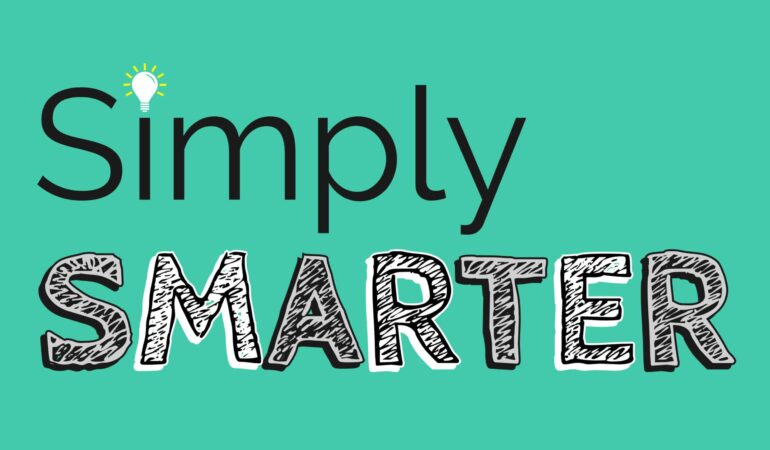ACT Specific Watches
At Get Smarter Prep, we’ve received a few questions lately about watches designed specifically for use on the ACT and other standardized tests. At first glance, these devices might seem useful. They’re intended to help you track how many minutes you have left in a section and which question or passage you should be on. They come pre-programmed with the number of minutes and questions for each section. As a bonus, they’re silent, and therefore “ACT-approved.”
As great as they seem on the surface, though, we can’t recommend them, for several reasons.
Accuracy over Speed
Accuracy is more important than speed on the ACT. Getting to your goal score is about much more than rushing to make your way to the end of a particular section within the allotted time. Nearly every student struggles with time on the ACT, and nearly every student can reach their goal without completing every question.
An important part of your preparation for the ACT should be working out which questions deserve your time and attention and which ones do not. There might be one Reading passage that consistently gives you trouble, and perhaps skipping it boosts your Reading score. There might be one type of English question that you find especially tricky or time-consuming, and perhaps skipping those types of questions and saving them for the end is your best approach. Most students benefit from cutting loose the last 10 (or 15, or 20) Math questions in favor of spending more time on the earlier questions.
These watches assume you’re going straight through the section, at a rapid, constant pace, and this simply isn’t the best approach for most students.
Each Question is Different
Some questions are harder than others.
The most obvious example of this is the Math section. Math question #47 will almost certainly take you longer than question #3 – that’s fine, as question #47 will likely be trickier and involve a bit more work.
You are not a robot who can be counted upon to spend exactly one minute per Math question, or exactly 8 minutes and 45 seconds per Reading passage. Some questions and passages will take you more time, and some will take you less. If you’re constantly glancing at your wrist, though, comparing yourself to an inflexible standard, you’ll likely only grow frustrated and distracted from what’s most important – getting points.
Each Student is Different
The ACT is a predictable, standardized exam that behaves in predictable ways. Knowing how the ACT is set up allows students and tutors to plan and strategize. However, even though the test is standardized, students are not! Each student is going to have a slightly different path to their best test performance. It is important to be open to making those adjustments as you prepare, instead of trying to base your strategy on the watch. The ACT is stubborn and inflexible enough for all of us – we need to adjust and adapt in order to be successful.
Technology Sometimes Fails
If your test performance hinges too much on the watch at your wrist, what happens if it fails? If the battery dies, or some other mundane mechanical problem arises? Your best insulation against the timing restrictions of the ACT is practice and strategy. Having a plan, practicing the plan, and following the plan is much more reliable than counting on a piece of technology that may or may not reliably get you through the exam.
Proctors Might Object
All these products advertise that they are allowed on the ACT, but a glance at their Amazon reviews shows that there have been instances where proctors don’t allow the watch into the room. If you practice with it and come to depend on it, and then the proctor doesn’t allow it into the testing room, you may become frustrated, anxious, or discouraged. That’s not a recipe for success on test day!
We want to see you get the best score you can on the ACT, and we don’t think these watches are the best way to accomplish that. Practice and preparation are key, even if they are more work than picking up a new watch.
Running Out of Time
It’s a common occurrence when taking the ACT. If you’re like most students, you struggle to finish different sections of the ACT or maybe even struggle to finish every section! You’re not alone. There are a lot of questions and this is a timed test, so time management is key to finishing each section.
Let’s take a quick look at the breakdown of questions and the allotted amount of time per section.
Questions |
Time |
|
English |
75 | 60 Minutes |
Math |
60 | 60 Minutes |
Reading |
40 | 35 Minutes |
Science |
40 | 35 Minutes |
English:
We like to say that the English section is one of the easiest sections to pick up points. Think about…within this section you are reviewing idioms, punctuation, pronouns, verbs, rhetoric content, and rhetoric style. Those are all things you’ve most likely learned about in the eighth grade. A solid review of all of those categories will pick up lost time within this section and leave you feeling ready for the math section, where students typically feel rushed.
Math:
The math portion of the ACT can be tricky for some students. There are 60 questions and 60 minutes to complete the section. Within this section, the questions become progressively harder. The second half of the test will generally have the questions that take the longest amount of time to solve and will involve more geometry and trigonometry than algebra. Do you struggle with geometry? Do you need help with trig? Defining what areas you struggle with and spending more time brushing up on those skills will be a huge help with the math section. Try not to rush. Answer each question to the best of your ability and if you feel pressed for time, bubble in the last questions with the same letter. Read about our Letter of the Day Strategy here.
Reading:
Most students have a hard time completing the reading section since there are four different passages (humanities, social sciences, natural sciences, literary fiction) to skim through as well as forty questions to accompany the passages. You have less than a minute to answer each question! Don’t freak out. There are different strategies to use within the reading section. Each passage has ten questions. Skim through the passage, then attack the questions. There are different categories within the passage such as line reference (e.g., “In lines 16-20”). Line reference is literally directing you straight to the lines within the passage! Other categories include lead word, comparing passages, vocabulary in context, the main point/big picture, and tone.
Science:
Here’s a shocker…there is no physical science in the science section of the ACT! It’s mainly charts and graphs. As you study for this section, make sure you know how to accurately read graphs and charts since the answers for all of the questions are right in front of you. For the questions that you can’t answer with the visuals, you can usually figure them out by reading the passage. Save time by skipping the instructions and head straight to the questions. Then go back to review the passage and the answer will most likely be within the passage.
Every student is different, but the common occurrence among all students is time management within the ACT. One way we like to prepare students is by giving them a Pretest, Midterm, and Final. Then we compare each test to see how far each student has improved. Not only does this get students ready for the test by practicing strategies, but it also helps practice their time management skills.
New Year’s Resolutions
New Year’s Resolutions
Everybody has them, but how long do they keep them? New Year’s Resolutions are pretty standard for most people. Everyone who makes them is bound and determined to keep their resolutions for the entirety of the year. However, if you ask those same people how their resolutions are coming along in June or July or even as early as March, I bet most of those people wouldn’t remember what they wrote down on January 1st.
We have good news. Depending on what your resolutions are, we can help you! At Get Smarter Prep, our passion is helping students learn. Whether that means increasing your overall ACT composite score, learning how to study better and more effectively, or to be accepted into your dream college. Whatever your goals are this year, our tutors are here to help.
With so many different ACT/SAT test dates, the first step is to determine which test date is right for you. The ACT has test dates in February, April, June, July, September, October, and December. The SAT has test dates in March, May, June, August, October, November, and December. Get Smarter Prep starts prepping for these test dates usually 8-10 weeks before the test. Look at your schedule and see which test date is best for you. Be sure to factor in extra-curricular activities, finals, work schedules, etc.
Maybe your goal for this year is to become an overall better student. We offer Study Skills Tutorials that will help identify your learning style and apply that information to all of the areas you need for high school and beyond. The skills can include role taking, general test preparation, homework planning, etc. Within these tutorials, students spend time building their reading comprehension, developing writing skills, and, of course, learning strategies and techniques for TIME MANAGEMENT – perhaps the biggest obstacle in achieving student success. We will help you learn to perform better in school, all while having less stress because you have a plan of action.
For many high school Juniors, college is right around the corner. Are you prepared? Don’t be overwhelmed with the mounting list of to-do’s when it comes to the college admission process. We have counselors who will guide you through the process. From finding a major or career your interested in, to helping you create and fine tune a college essay, to building a college list that’s right for you. Get Smarter Prep has you covered.
Let us help you keep your New Year’s Resolution throughout the entire year! Our Tutors will help you maintain those goals from the beginning of 2019 to the end.
Does a High ACT Score = Freshman Year Success?
Standardized testing, such as the ACT, is a major factor in the college planning process. Most colleges require either an ACT or SAT before considering admission to their schools. Does a higher ACT score mean you’ll have more success your first year in college?
A higher ACT score may equal a more selective school, however there are more items to put into this basket such as your Grade Point Average (GPA), extracurricular activities, how stellar your college essay is, if you chose to volunteer throughout the past four years, if you took AP classes and how well you did in those classes, etc. A fantastic score on the ACT could make you a more impressive candidate for scholarships, especially those based on merit and academic achievements, but your score is one out of a number of items that colleges look at.
If you are scoring a composite score of 30 or higher, you’re already in the top 2% of high school graduates. The chances of getting selected into a top-tier school will be higher with greater ACT scores. Is a 4.0 GPA better or 35 composite ACT score better? Colleges look at both. Your GPA is more reflective on how hard you’ve worked over your high school career. Your ACT score can be a good indicator of how much you’ve studied for the ACT in general. Some students spend months studying for the ACT. Other students totally wing it (which we don’t recommend).
How does a high ACT score affect my freshman year of college?
Once you’ve selected your school and been accepted, what role does the ACT play in your first year of college? Most likely, if you received a high ACT score, you’ve taken challenging, higher-level courses in high school which is associated with increases in students’ chances of success in first-year courses. You’re ready to tackle college courses because you’ve taken tough classes in high school. If you have a high GPA, that means you’ve had success in the AP and higher level classes.
One of the biggest challenges that lies ahead of you is translating those stellar grades from high school to college. It’s easy to lose focus in college, since you’ve already been accepted, however, if you’ve received an academic scholarship there is far more to lose than you may imagine. Now is the time to focus on the same good habits you’ve created in high school such as attending class, completing your homework on time, attending study hall or office hours, and asking for help when you need help.
Conclusion:
Yes, a higher ACT score can be an indicator into how ready you are for college courses. However, just as colleges factor in more than your ACT score, freshman year success is more than just attending classes (there can be a lot of distractions). One surefire way to have success your first year of college is to stay focused on your schoolwork, which will ultimately translate into good grades and securing your academic scholarship for your second year in college.
Practice Test FAQ’s
Families often ask whether it’s OK to use a different test as a baseline – something besides the free practice test that we offer. The answer to that question is long and complicated, but the short version is that we offer free practice tests because we think they’re incredibly useful – to us and to students and families! Here are some answers to common questions about different baseline tests.
-
Can I use my PSAT score?
Most students take the PSAT as Juniors, and many take it as Sophomores as well. It’s common to want to use this test as a gauge of strengths and weaknesses on the SAT (after all, it’s supposed to be a practice SAT, right?) or even an ACT.
First, we’re not able to use the PSAT as a predictor for the ACT, because the tests are fundamentally unrelated. Second, the PSAT and the SAT don’t show as much correlation as we’d like to use the PSAT to make tutoring recommendations. The timing and content are both different enough that it’s not a very good measurement.
One more thing to consider, if we’re talking about the sophomore PSAT – if it’s been months or even a year since the exam, it wouldn’t be a very accurate measure, even if the test itself was good predictor.
-
What about my Pre-ACT?
Unfortunately, the Pre-ACT is also not very predictive. The scoring is different, the content is different, and you’re likely to have nearly a full year of academic progress between taking the Pre-ACT and taking the real thing. We see significant variations between the Pre-ACT scores and actual ACT scores, and our goal is to have the most accurate baseline possible.
-
I already took a practice test at another prep company. Can you use that?
Most test prep companies offer practice tests. However, most of them use their own exams that they wrote, intending to mimic the official ACT. Some companies might do an OK job of mimicking the ACT; some miss the mark completely. We only use previously administered official ACT exams. All our tests were developed and scored by ACT, which means they are the most accurate predictor of how you’ll score on another official ACT exam.
-
I took a practice test at my school. That one should work, right?
Although schools often offer practice tests, we still recommend having students test with us, for a few reasons.
The main reason is that it’s difficult to get confirmation of which test is being used, and whether it is an official ACT/SAT, or not. Schools often use tests that were written by someone else (like a test prep company), and therefore are not as predictive as an official ACT or SAT. We only use official exams that have been previously administered.
-
I took a practice test at home. Let’s use those scores.
Practice tests taken at home can suffer from a few problems. The first can be the test itself – which test did you use? Was it an official exam? The second is that we’re often more comfortable at home than we might be in an unfamiliar testing environment surrounded by strangers. This comfort can have an effect on your scores – it might inflate them, because you’re feeling less stressed, or it might lower them, if you weren’t focused, or you were checking your phone, or if your little brother was practicing Tae Kwon Do in the next room and you were worried he was going to break something.
-
I already took an official Do I still need to come in to take a practice test?
If you already took an official ACT, then we will (probably) use those scores! We may still recommend a practice test in some instances – if your official test was in 7th grade, for example. Generally, though, we will use your official scores to make our recommendations. The goal is to have an accurate prediction of how you’ll do on a real test – if you’ve already taken a real test, there’s generally no need to duplicate that effort!
If you’ve already taken one or more of the tests listed above, it might seem frustrating to have to spend another 3.5+ hours sitting through a practice ACT. Here are the main reasons why we think it’s worth losing a chunk of your Saturday:
- It’s a recent previously administered official ACT exam in a proctored environment. This means you’re getting the best, most accurate results possible without taking an official ACT.
- We’ll score your exam quickly – within 2-3 days.*
- Our score reports include detailed feedback. This provides great information for the student and the tutor – which categories of questions a student is missing, how did the student handle the time constraints of the test, etc.
- After the practice test, you’ll have a ScoresBack appointment to review the exam, ask questions, and discuss our customized recommendations.
We probably seem like we’re being unnecessarily picky about this, and we are a little picky! But that pickiness comes from a place of wanting what’s best for students. Our goal is always to make the best, most accurate recommendation possible, because that’s what we believe is in the best interest of the student. The more accurate a starting point we have, the more accurate our recommendations can be, and the more likely you are to reach your goals!
*You’ll receive your results during the ScoresBack appointment, which you’ll schedule after you’ve taken your exam.
Your Guide to Creating a Test Plan
Preparing for your future is intimidating and most students have no clue how to start the college planning process. At Get Smarter Prep, we want to help you prepare for college with an easy, step-by-step guide to help navigate students through the process. We want to make this as simple as we can, because we know you are busy with extracurricular activities, homework, sports, and not to mention being a teenager! Let’s begin creating a test plan!
Step One: Which test is best for you? ACT or SAT?
Figure out which test you should take, whether that be the ACT or the SAT. If you haven’t taken an Official exam, the best place to begin the test prep process is with a Free Practice Test. We encourage all students to establish a baseline for the ACT & SAT. Get Smarter Prep offers Free Practice Tests nearly every Saturday. Here are three basic reasons to take a Practice Test:
-
Want to know how you would score on a real test?
-
Starting one of our classes without a baseline score?
-
Want to get some fear and loathing out of the way in a practice environment?
Once you’ve take one or both tests, pick a test and stick with it. It’s best to prepare for one test only, either the ACT or the SAT, but not both. If you’ve taken both and still aren’t 100% sure which test is for you or simply don’t want to take both test, let’s take a look at some of the differences between both tests.
On the SAT, math counts for half of your score, while on the ACT math makes up only ¼. That’s a significant difference. Consider, also, how well you’ll fare without a calculator, as the SAT has a section that must be completed without one.
How much do you want to improve your score? There is much less practice material available for the SAT than for the ACT, which means fewer opportunities to practice and improve your score. If you’re looking for a significant boost, you might lean towards the ACT.
How much do you struggle with timing? The timing on the ACT is more difficult for some students. The SAT provides more time per question, which might be an asset. Taking a practice version of each will help you to know if that is the case for you.
Step Two: Which test date is right for you?
Now that you’ve decided which test you want to take, the question becomes, which test date is right for me? That’s a question only you can answer based upon your extracurricular activities, course schedule, academic readiness, and your ability to best prepare for the test.

Our courses generally start 8 weeks prior to the actual test date, so make sure you leave enough time to appropriately prepare for the ACT or SAT given your set goals. If you’re looking for a big jump in your composite score, you will need the full amount of time to prepare for the test. Schedule accordingly.
Step Three: How best to prepare for the test?
Now that you know which test you want to take and which test date fits into your schedule, lets take a look at different options to help you prepare for the test. We offer a number of different services including small group classes, Semi-Private Tutoring, and Private Tutoring.
ACT Prep Courses |
Semi-Private Tutoring |
Private Tutoring |
|
ACT Preparation Courses are focused on a smaller, more cohesive group. Get Smarter Prep students consistently find results through our tried and true curriculum. Students typically increase their scores anywhere between 2-4 points. The Curriculum for the ACT Prep Course is suited for students scoring in the 19-26 range. |
Whether you have a challenging schedule, want to work with your friends, or just want a more customized approach than our courses, Semi-Private Tutoring can be a good fit. These tutoring-course hybrids allow for some cost efficiency (like courses) AND customized scheduling & unique curriculum (like private tutoring). Groups must include at least two students, but no more than four. |
Often times we recommend Private Tutoring for students with significant differences in their sub-scores, as the tutor can target specific portions of the test, for students that have a hectic schedule (we realize how busy Junior year can be), or students that want to realize the largest score improvement possible. Our approach is customized to each student and their specific needs within each portion of the test. |
After you figure out which test is best suited for you, which test date is going to fit into your busy schedule, and how best to prepare for the test, you’ve accomplished more than most students and are on your way to tackling a big step towards your future! Good luck!








